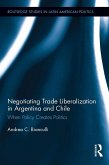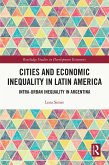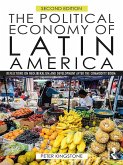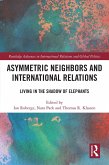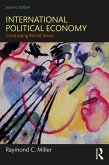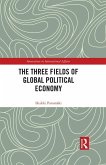The book analyzes the puzzling observation of policy divergence by investigating how countries have reacted differently to major financial crises since the 1970s. It shows how Argentina and Japan selected a governance approach to financialization that followed Western prescriptions by propelling unregulated financialization; but also how Chile and South Korea, by contrast, crafted policies to reduce the negative effects of financialization on economic development and financial stability. The book identifies variegated expertise in central banks, ministries of finance, expert commissions, and research institutions that has informed policymaking across Argentina, Chile, Japan, and South Korea since the 1970s. It then demonstrates how governments have used experts to achieve diverse political objectives and explains how governments can use experts to enhance state agency to counter globalization pressures.
This book will appeal to scholars of International Political Economy, comparative politics, economics, sociology, development studies, and Latin American and East Asian history. It will also be of interest to economists and policymakers who want to safeguard financial stability and promote economic growth.
Dieser Download kann aus rechtlichen Gründen nur mit Rechnungsadresse in A, B, BG, CY, CZ, D, DK, EW, E, FIN, F, GR, HR, H, IRL, I, LT, L, LR, M, NL, PL, P, R, S, SLO, SK ausgeliefert werden.
Cornel Ban, Copenhagen Business School, Denmark
"Few issues have attracted as much scholarly and public attention as the autonomy of states under conditions of financial globalisation. Yet Nagel sheds new light on the thorny relationship between states and markets by pointing to the role of expertise and its strategic use by domestic governments. This book will certainly be of interest to all those who care about the changing role of state capacity and, importantly, outside the Western world."
Manuela Moschella, Scuola Normale Superiore, Italy
"How to explain the continued divergence of national financial policies in the face of waves of financialization? Pointing to the agency of experts and the power of ideas as crucial differentiating variables, this book offers a succinct and fascinating account of the different fates of Argentina, Chile, Japan, and South Korea following the initial liberalization of the 1970s. Well researched and carefully argued, this book is a major contribution by an up-and-coming scholar."
Matthias Thiemann, Sciences Po, France
"This thought-provoking book sheds novel light on how countries frame financialisation. It highlights a key factor - expertise - that enables governments to exert domestic agency in resisting convergence in the global economy. This work is theoretically sophisticated and empirically rich - it is a required reading for anyone interested in the governance of finance and, more broadly, comparative and international political economy."
Lucia Quaglia, University of Bologna, Italy




